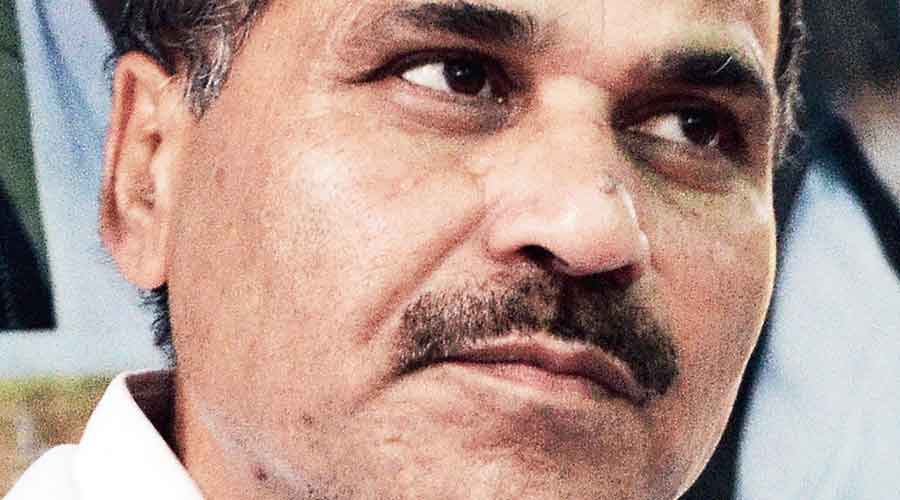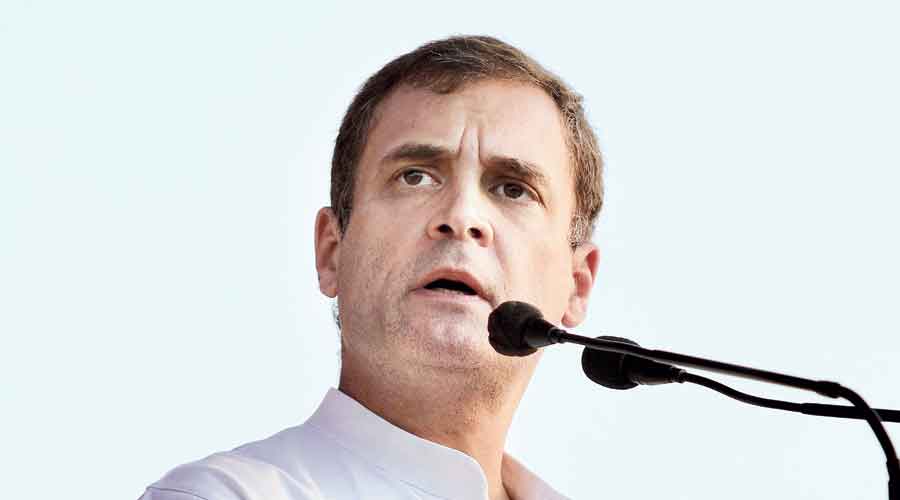The Congress on Friday reacted to the government’s choices for the new chief information commissioner and a new information commissioner by saying the Centre wanted to run the country through “a cosy club of favourite bureaucrats and sycophants”.
It said the Narendra Modi government’s record in “transparency and accountability” had been “pathetic” and that its appointments to investigative agencies and watchdog institutions demonstrated its anti-democratic mindset.
Adhir Ranjan Chowdhury, Congress leader in the Lok Sabha, was referring to the proposed appointment of former diplomat and information commissioner Yashvardhan Kumar Sinha as the new chief information commissioner, and that of journalist Uday Mahurkar as information commissioner.
Chowdhury had opposed these choices in his capacity as a member of the appointments committee, which includes the Prime Minister and the Union home minister.
“If you want to conduct administration through a cosy club of favourite bureaucrats and sycophants, democracy diminishes,” Chowdhury told The Telegraph.
“Watchdog institutions and investigative agencies like the CBI, Central Vigilance Commission, Lokpal, Central Information Commission, Comptroller and Auditor General of India play a critical role in the democratic functioning of the country. Any attempt to control these institutions with the help of pliable officers undermines democracy.”
Chowdhury is said to have recorded his dissent at the appointments committee’s October 24 meeting, alleging violation of the criteria laid down by the RTI Act.
He had argued that Sinha, a former Indian Foreign Service officer, lacked adequate “on-ground” domestic experience in the field of service delivery.
Chowdhury had supported the candidature of another information commissioner, Vanaja N. Sarna, who was senior to Sinha.
Mahurkar, Chowdhury had said, had not even applied for the post but was picked because he is a known Modi supporter. The journalist has written books on Modi and subscribes to the RSS ideology.
“There are two aspects (to such appointments): one, following the guidelines of the Supreme Court and the provisions of the act; two, deciding by consensus. This government has no concern for either. They just decide and bulldoze their decision,” Chowdhury said.
“We have seen it in the past. Democracy will not survive in this manner. There is a ‘Liberal Democracy Index’; India is falling in its rankings.”
Chowdhury had also objected to IAS officer Sanjay Kothari’s appointment as chief vigilance commissioner in April, citing a vitiation of the selection process — the search committee had included an official who was himself an applicant. The government had ignored the objections.
In the past, then Lok Sabha Opposition leader Mallikarjun Kharge had written dissent notes in vain.
During the selection of the Lokpal, Kharge had seven times refused to attend the committee meeting as he had been called as a special invitee without the right to vote. To justify the denial of voting rights, the government had cited the technicality of his not having been formally anointed as leader of the Opposition.
The Congress has consistently been complaining about a conspiracy to weaken democratic institutions.
There had been speculation about the Lok Sabha public accounts committee, headed by Chowdhury, writing to the CAG about the delays in filing audit reports over the past few years. Chowdhury confirmed on Friday that he had written to the CAG.
“Delays in the reports ensure that burning issues are forgotten. By the time the reports come, governments have changed in the states or events have overtaken the subject. We have summoned the CAG to explain the delays at the next meeting,” he said.
Apart from the delays, the number of the CAG’s reports has fallen sharply over the past few years.
During the tenure of Vindo Rai — which damaged the reputation of the Manmohan Singh government — the CAG used to churn out over 200 audit reports for Parliament and the state legislatures every year. It, however, produced just 73 reports in 2018-19 and 98 in 2017-18.












